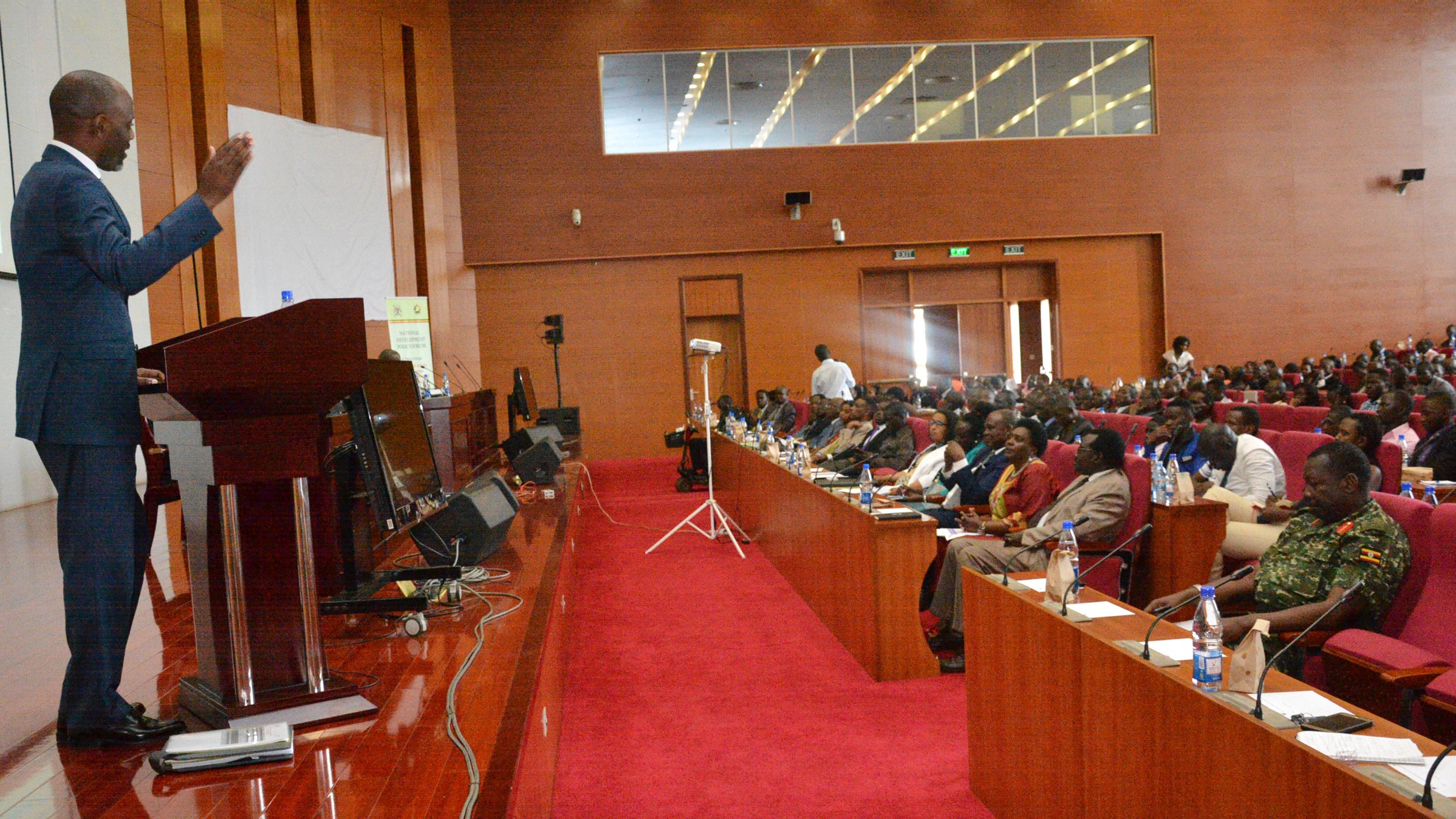Information and Communication Technologies (ICTs) have become the leading medium for communicating, transacting, informing, educating and entertaining all over the world. Usage of technologies such as television, radio, fixed and mobile telephony, has become a basic and indispensable feature in the lives of people across the globe.
The International Telecommunications Union currently estimates subscriptions to mobile services worldwide close to about eight billion, of which about 22 million are in Uganda. Since 1990 when computer scientist Tim Berners-Lee invented the World Wide Web, Internet usage has fast expanded with an estimate of almost four billion users in the world now, 16 million of them in Uganda. Every country is benefiting from ICT’s opportunities for economic and social development. It is hence imperative to ensure that persons with disabilities (PWDs) are not excluded from the use and benefits of ICTs, which must be developed and deployed in a manner that is accessible to accommodate all types of disabilities.
Disability is an umbrella condition, covering impairments, activity limitations and participation restrictions; it denies a person a normal economic and social life. In today’s world, with the ubiquitous impact of ICT and assistive technologies across all sectors, no one should be excluded from using computers, cellular devices/phones, the Internet, televisions, automated teller machines, as well as electronic kiosks, their myriad of software and associated services. Being excluded from ICT-enabled applications implies being shut down not only from the information society, but also from accessing essential services, such as e-government, e-health, e-procurement, e-commerce, etc, as well as from the opportunity of living an independent life.
According to the Permanent Secretary in the Ministry of ICT and National Guidance, Vincent Bagiire Waiswa, an ICT policy specialist, the challenge now is for governments to take the situations of PWDs fully into account by mainstreaming a disability perspective in all planned development actions, including legislation, policies and programmes, in all areas and at all levels of development.
The United Nations Convention on the Rights of Persons with Disabilities was the first international instrument on disability, enacted in 2006. Although 172 countries globally had ratified it as of March this year, apart from South Africa and Tunisia, none has formulated a stand-alone National ICT for Disability Policy like Uganda is doing. The treaty charges Governments with the responsibility of ensuring that the rights of PWDs are recognized and respected. Its preamble mainstreams disability issues in all legal frameworks as an integral part of strategies for sustainable development. Articles 9 and 21 of the Convention outline the need for a more accessible ICT environment that caters for the needs of PWDs by employing methods and formats accessible to them. However, although they constitute a very important segment of society, PWDs are marginalized in most societal strata.
The Commissioner for Information Management Services at the Ministry of ICT and National Guidance, Kenneth Bagarukayo says the Government of Uganda underscores uptake and improved utilization of ICTs to ensure universal access to services and opportunities. Given the emergence and convergence of technologies such as the Internet and artificial intelligence, applications of ICTs for PWDs are enormous. Therefore, the Ministry has developed the National ICT for Disability Policy,the first ever in the country and third in the world, as an intervention to close gaps in the use of ICTs by PWDs. The Policy, now undergoing improvement for Cabinet approval, proposes comprehensive sector-wide interventions.
While opening the Policy Validation workshop held in the Uganda Bureau of Statistics Conference Hall on Thursday, October 26, 2017, Bagiire Waiswa said the Policy would be a basis for the ICT sector to support the Government’s continuing efforts to improve the lives of all Ugandans. His ministry organised the workshop and is taking lead in the Policy formulation.
Globally, the number of persons with disabilities is increasing. Recent surveys have estimated that over one billion people in the world, three million of these in Uganda live with some form of disability.Furthermore, over 40 percent of the older persons in Uganda have a disability, making it a national concern. Hitherto, Government concentrated on providing rehabilitation services for PWDs mainly through the provision of health services and special needs education, among other affirmative actions.
Silas Ngabirano, the assistant commissioner for information management at the Ministry explains that the proposed Policy seeks to augment these efforts by providing proactive interventions through the use of ICTs that are aimed at improving the quality of life of the PWDs. ICTs enable them to have equitable access to information and knowledge, making them live more independently and reduce on their living costs such as fees for hiring guides and sign language interpreters.
Ngabirano says the Policy is to guide. Without it, ICT-based interventions for PWDs remain ad-hoc, market-led and small-scale private initiatives. Considering that disability is a cross-cutting issue in the public sector, business, civil society and development partnerships, the Policy will be a planning framework to guide resource allocation,development, as well as supply and implementation of accessible ICTsin Uganda. The main objective here is to use the technologies to reduce marginalization of PWDs and enhance equal opportunities for them.
Under the proposed Policy, all organs of government are required to develop their own individual strategies and implementation plans that set specific standards and criteria to ensure that PWDs access their ICT-based goods and services. Additionally, they should promote awareness and support the availability of accessible ICTs in their own environments. The most important lesson from observing global trends is that all successful ICT initiatives have been through partnerships between Government, PWD organisations, development partners and the private sector to create a truly inclusive world. Therefore, the success of the ICTs for Disability Policy calls for strong multi-stakeholder partnerships.

